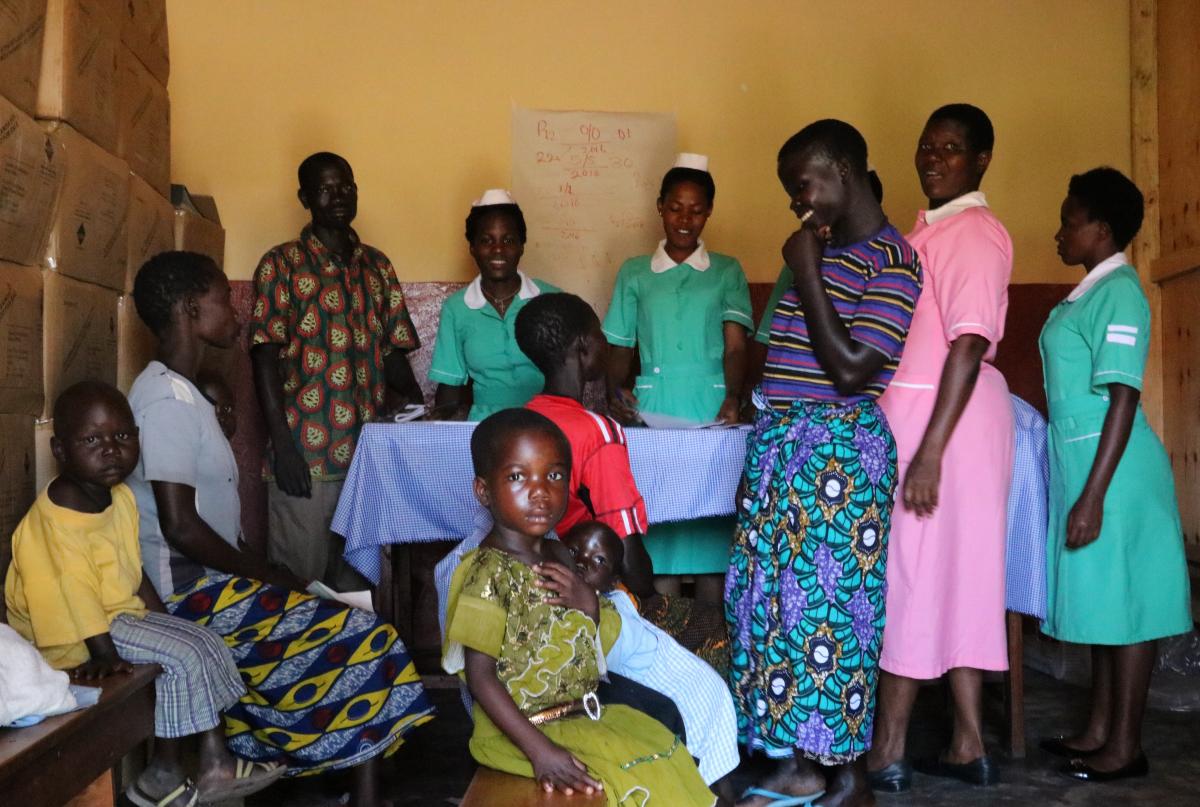Increasing access to health care with “performance-based financing”
BTC’s
Private-Not-For-Profit project assists faith based health facilities in delivering
the best possible healthcare services for their patients. To bring Uganda one
step closer to universal healthcare coverage, a new system of performance-based
financing is introduced. A system that rewards the outputs instead of funding
the inputs of the health facilities. Good performing hospitals and health centers
will receive financial support to be used with more autonomy.
One of the regions where BTC is helping to set up performance-based financing
(PBF) is the West Nile region. It lies in the north-west of Uganda bordering
the Democratic Republic of Congo and South-Sudan. Many people fleeing conflicts
or difficult economic situations in these countries are looking for medical
treatment in a region that is yet to fully recover from the violent conflict
between Joseph Kony’s Lord’s Resistance Army (LRA) and the Ugandan government.
In 2006 a truce between both parties was signed. Since then improvement in
poverty reduction has been made but according to the Ugandan Poverty Status
Report of 2014 the Northern part of Uganda remains the poorest of the country.
Here health service providers are trying to deliver quality healthcare
to an often very poor population. Our Private-Not-For-Profit project (PNFP)
assists through Ugandan ministry of health the private-not-for-profit health
facilities with capacity building in quality improvement initiatives,
leadership and management.
Flipping the old logic
Traditionally funding for health has been directed towards inputs like salaries,
construction, training and equipment. People thought that improved healthcare would
follow but this hasn’t always been the case. The new system of
performance-based financing flips the old logic around and focuses on improved
performance.
Health facilities receive quarterly incentive for initiatives that are
taken to implement the quality standards defined by the Ministry of Health.
They are also rewarded for quantitative performance targets like “number of child
malnutrition correctly treated’, ‘number of fully immunized children’ or ‘number
of deliveries well managed’. The quantity and quality of delivered health
services will be verified on a quarterly basis.
Reducing the patient's bill
In the performance contracts signed between the health facilities and
the Local Government, the subsidies granted for achieving these quantitative
performance targets are linked to reducing the patient’s bill. Currently user
fees contribute to 50 to 60% of the total income of the health facilities, this
is too high. According to World Health Organization recommendations, not more
than 20% of the cost of the health services should be covered by user fees.
13 of the facilities (4 hospitals and 9 health centers) in the West Nile
region have been selected to start with performance-based financing. By turning
away from centering attention on inputs, RBF aims to improve both health system
effectiveness and efficiency. Health providers at a district level are free to
use the grants to implement their own work plan.
Local decision making power
Managers, doctors and nurses can set their own priorities according to
the needs on the ground and will receive the spending autonomy to back their
choices up. They will gain more decision making power, and become responsible
for their own performance. This shift from a centralized budget to more local
decision making power is an important reform that BTC, together with the
Ugandan government, is helping become a reality.
This is just the beginning of a challenging but exciting process. Two
other east-African countries, Rwanda and Burundi already introduced a system of
performance-based financing with promising results to show for. To give two
examples: according to the Africa health forum of 2013 post-natal care visits
in Burundi have gone up and the overall quality of care in health facilities
using PBF has increased in Rwanda. With the Ugandan government, the ministry of
health and the local PNFP partners on board, BTC believes that
performance-based financing could be a real game changer for the health sector
in Uganda.
Latest news from this project
No news

